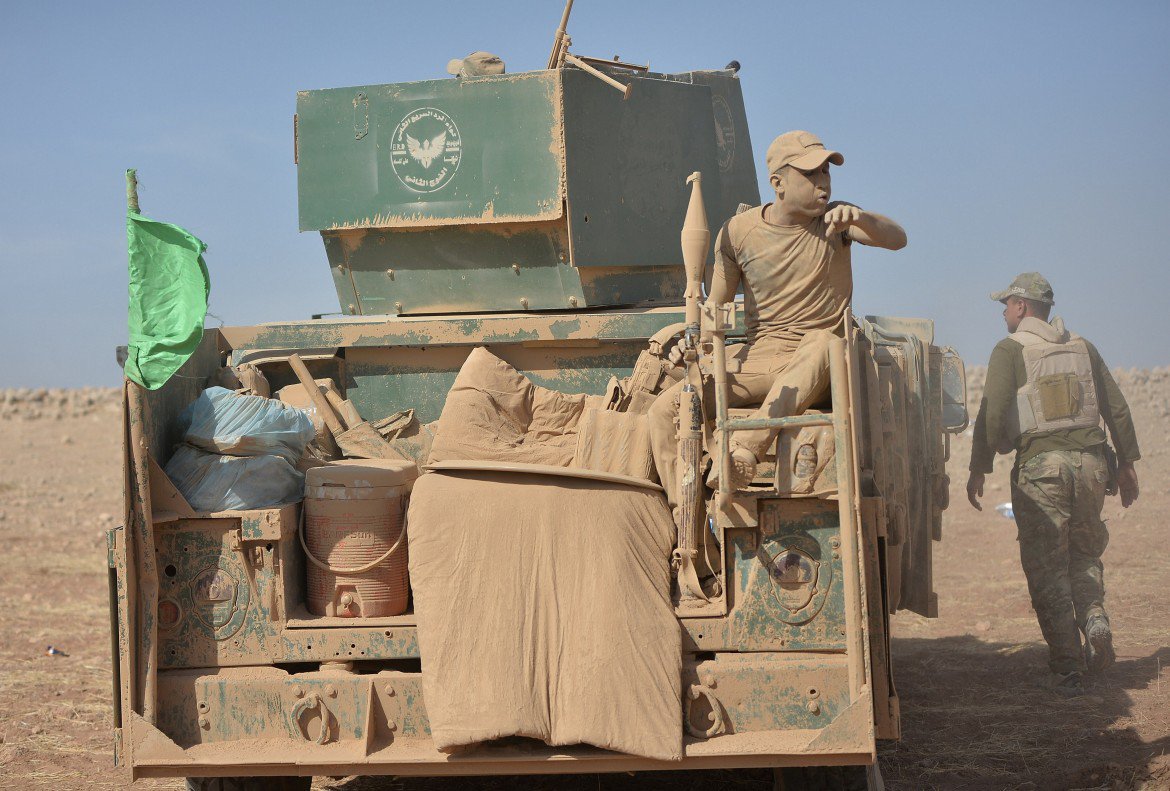Iraq
ISIS turns to its old deterrence tactic: barbarism
Abductions, executions and poison gas: As the Islamic State “defends” its stronghold, the international stakes grow higher.

“In our village, Kalidiya, south of Mosul, we have witnessed heavy clashes between the Iraqi army and ISIS. There were many dead—we were saved by a hair,” said Amar Saad Nadimi, 20, in an interview with Middle East Eye. He has spent the last three days at the Dabaqa refugee camp in Iraqi Kurdistan. He spoke about the divisions that revolve around the counter-offensive on Mosul: Some of his friends wanted to join the army or the government militias involved in the operation to take back the city.
But Baghdad and Erbil do not want them: Like the other Sunnis who have arrived there, they were searched and interrogated to verify that they had no links with ISIS.
The atmosphere is tense. On Saturday, the head of the Kurdish Kirkuk police accused Sunni refugees in the city of having helped ISIS to infiltrate and 30 percent of displaced people of supporting the Islamic State. The “Caliphate” has rested its political and military strategy on these divisions since before the occupation of one third of the country in 2014. It continues to do so. The assault on Kirkuk is the proof of it. Armed clashes ended Saturday at dawn, after more than 24 hours and 80 deaths, mostly members of the security forces.
In Kirkuk, they believe the unexpected operation was intended to divert energy and attention from Mosul. The peshmerga commanders told Al Jazeera: “Somehow, the maneuver was successful: some of the forces sent to Kirkuk yesterday, both Iraqis and peshmerga, were recalled from the front line.”
The imbalance of forces, in any case, does herald the fall of Mosul: 30,000 men — peshmerga, Shiite militiamen and Iraqi soldiers — against 3,000-6,000 militants entrenched in the city. In order to defend as long as possible their Iraqi stronghold, the Islamic State is giving vent to the worst barbarisms, its grisly trademark. Two days ago, the U.N. denounced the kidnapping of about 550 families from two villages on the outskirts of Mosul, taken away to serve as human shields at the time of urban warfare. Ra’ad Zeid al-Hussein, the U.N. high Commissioner for Human Rights, warns that “there is a high risk that Isis does not want to use them only as human shields, but may prefer to kill them rather than see them freed.”
That fear may already be a reality. According to Iraqi intelligence services, on Saturday 284 men and boys were executed in Mosul and thrown into a mass grave in the city’s former agronomy facility. Men and teenagers perhaps killed for fear that they could join the anti-ISIS resistance, like thousands already held in prison camps. ISIS has also used poison gas on the advancing Iraqi and U.S. troops, who were slowed this weekend by a fire ISIS started at the Mishraq sulfur plant. Two civilians were killed and hundreds were intoxicated.
At a political level, the U.S. is attempting to silence regional tensions. Defense Secretary Carter arrived Saturday in Baghdad by surprise. He discussed with Prime Minister al-Abadi the role of Turkey, after announcing on Friday that an agreement in principle has been reached between the Iraqi government and Ankara. But al-Abadi rebuffed the Pentagon: The prime minister reiterated the importance of having good relations with Ankara but also gave a resounding no to the participation of Turkish troops in the battle for Mosul.
That prospect is worrying to Iraqis and Kurds. The neo-Ottoman Empire policy of President Erdogan points to a virtual extension of the borders to areas that he considers the natural continuation of Turkish control. In fact, the long arm of Ankara could result in more or less direct control of northern Iraq.
Specifically, there are rumors that among Erdogan’s plans is the creation of a buffer zone based on that imagined model for Northern Syria, both to shove out the refugees that Europe doesn’t want, and to separate its own Kurdish Southeast from Syrian-Kurdish Rojava and the mountainous northern Iraq where the PKK operates.
And at the international level, Iraq is in the middle of the confrontation between Russia and the United States. On Saturday, Moscow accused the U.S. of bombing a funeral in Daquq, south of Kirkuk. According to the Russians, 17 people were killed, mistaken for Islamists.
Originally published at http://ilmanifesto.info/le-barbarie-dellisis-per-frenare-la-controffensiva-su-mosul/ on 2016-10-23
